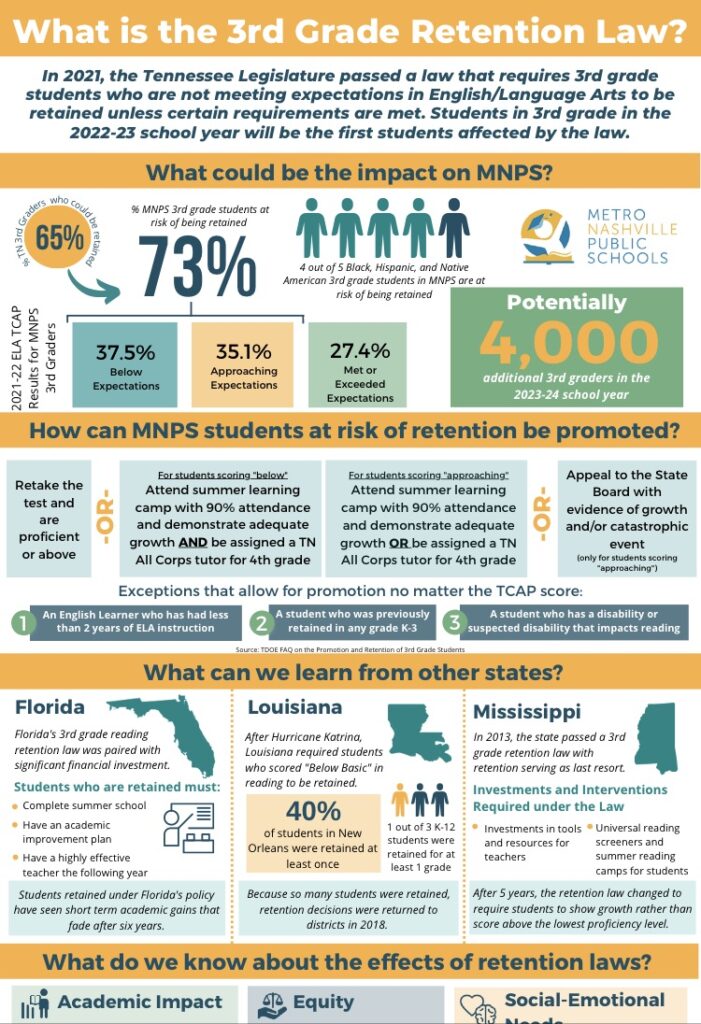Tennessee is NOT one of them
Tennessee has a third grade retention law that goes into effect THIS YEAR.
That means kids in third grade right now will be impacted. A lot of them.
What’s interesting is to see other states that have tried this sort of law – and then backed down.
The Education Report notes that Michigan has just repealed its third-grade retention law after seven years. Why? Because it doesn’t work!
Michigan’s legislature recently sent third grade retention repeal to the Governor.
Here’s how lawmakers explained that decision:
“Michigan isn’t the first state to try this,” Koleszar said. “We’ve seen it in other states and there’s zero data from any other states that suggests retention is the way to go. We’ve got enough data to know it’s not working.”
Here’s what else is interesting about the Michigan repeal:
“Let’s use that money for reading intervention specialists, for literacy coaches, after school programs, summer school programs, to tackle the issue that way, instead of being reactive and just holding them back in a punitive and punishing way,” said Rep. Nate Shannon, D-Sterling Heights.
The bill passed Tuesday repeals the retention aspect of the law, but retains other elements such as staffing recommendations, reading intervention services, and the use of evidence-based curricula and instructional material.
Hello? Tennessee??

For more on education politics and policy in Tennessee, follow @TNEdReport








